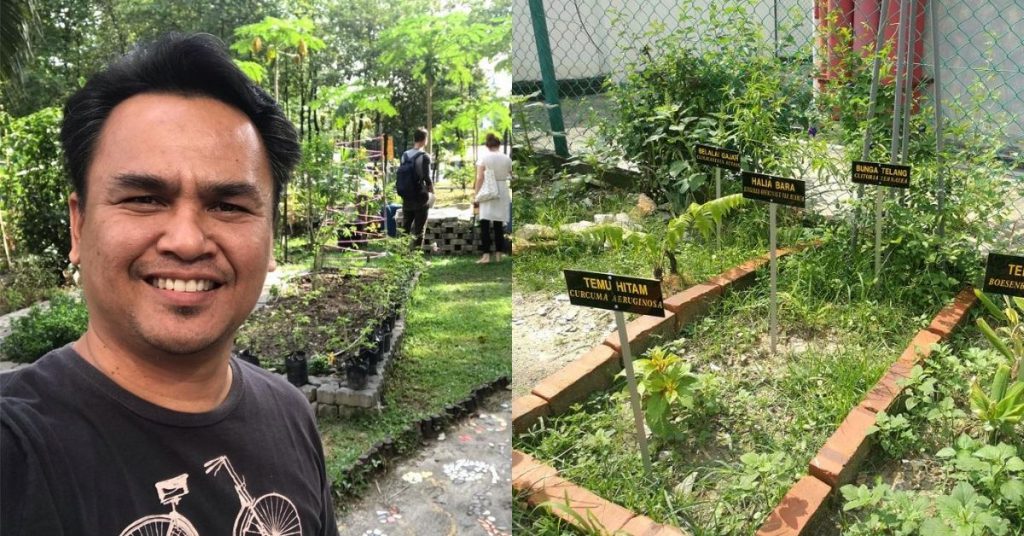In my family, buying organic produce has always been our go-to, where vegetables with holes in their leaves are a good sign.
It’s hard to deny that the organic trend is picking up in Malaysia, seeing how so many small startups are jumping into the business of selling organic produce.
We’ve seen startups who sell organic produce (Plucked, for example) and startups who give you the tools and knowledge on how to grow your own (The Urban Farmer and Eats, Shoots & Roots, for examples), but we’ve yet to see a startup combine elements of both.
Until now, with Pasarkita. It’s a platform encouraging urbanites to not just grow, but also sell their organic produce to neighbours through a subscription model.
With a belief in profit sharing to empower local communities, the business aims to cut out the decentralisation of food distribution, particularly for fruits and veggies.
To do so, they sell starter kits to urban gardeners who can plant them in their home or community gardens to sell to neighbours who fall within a 1km radius.
Pasarkita’s team will also advise their urban farmers in growing their produce through their online platform to ensure their growers’ success.
Once the veggies are harvested, growers can sell their produce to one of Pasarkita’s centralised hubs operated by a neighbourhood’s resident association who will also handle deliveries to subscribers. They will then reimburse the funds to the growers who sold their produce.
Partnering with these resident associations helps Pasarkita attain more reach for awareness and higher adoption rates too.
A Worthy Investment
Vulcan Post got its co-founder, Hanizar to explain the idea behind their business model. Why pursue this over tried-and-tested methods already in the market?
He shared that over the MCO, he noticed the amount of stagnant land that many homeowners weren’t utilising. Plenty were also struggling to earn an income from staying home.
As Hanizar comes from a background in healthcare, he thought that Pasarkita would be an opportunity for him to encourage a healthier lifestyle for the public while also helping them earn some income.
But Pasarkita isn’t just limited to those with underutilised garden spaces. Even if you have no garden at all (like me), you can still grow your produce in a vertical garden like their hydroponic starter kit. These are made by B40 communities out of recycled plastic bottles.
The hydroponic starter kit includes 50 plastic bottles, equipped with a pump, reservoir, seedlings, and fertiliser for up to an equivalent of 25sqft of land. This set will cost a grower up to RM400 until their first harvest.
But if you think that’s a high initial investment, Hanizar told Vulcan Post that growers can later make an average of RM600 per month as they get to keep 100% of the profits from their sale.
For example, if a grower sells their veggies at RM10 to Pasarkita, the latter will pay the same amount back.
However, these figures are only possible because Pasarkita sells their produce through subscription models which comes at a higher price than what you’d find in regular grocery stores.
Their subscription model comes in 2 packages:
- Basic – RM50/month for 2kg of produce,
- Standard – RM100/month for 4kg of produce.
The fresh fruits and vegetables will be delivered to subscribers every 2 weeks in baskets.
Planting The Seeds
Currently, Pasarkita is still undergoing their pilot testing phase in SS1-SS9 in PJ and Medini, Johor and focusing on building more growers.
“We are sharing and educating each community on the basic knowledge of farming,” said Hanizar.
So far, most of their growers consist of pensioners and housewives from these test areas.
Once Pasarkita fully launches their business to the public, they hope to be seen as a community brand and a platform that’s also an economic income generator for Malaysia.
-//-
In our startup trend predictions for 2021, we said that we’ll see more young startups innovating the agricultural industry.
This is because more people are now willing to buy produce from smaller players and share their names on social media to show support.
We’re also being more conscious of and cautious about where our fresh organic produce comes from. Thus, it seems that having them grown within your own community by neighbours you know could be quite the appeal.
Featured Image Credit: Hanizar, co-founder of Pasarkita
